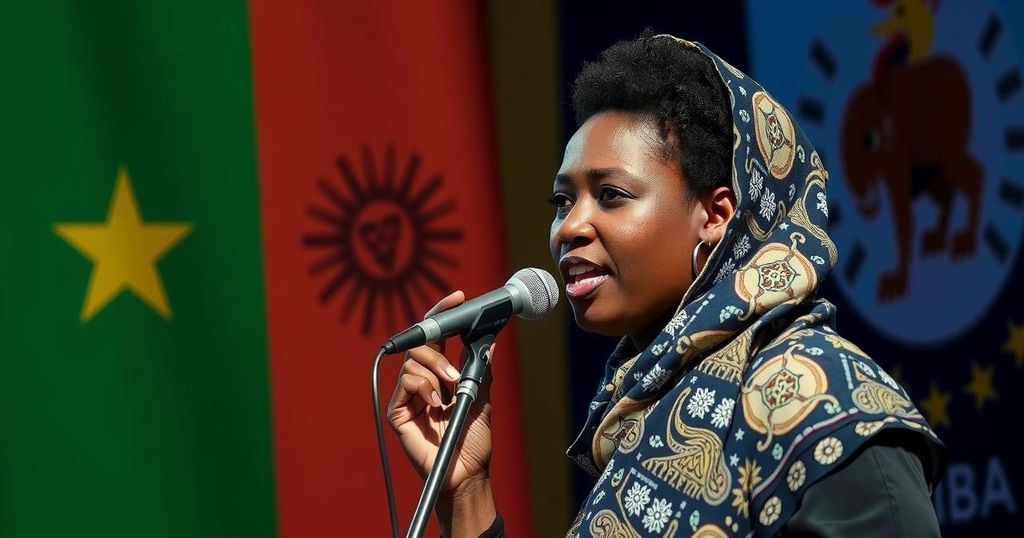Namibia Elects First Female President Amid Electoral Disputes

Namibia has elected its first female president, Netumbo Nandi-Ndaitwah, with 57% of the vote. Her victory continues the Swapo party’s 34-year rule amidst allegations of electoral irregularities. Nandi-Ndaitwah’s political history includes active participation in the independence movement, and her win contrasts trends of declining support for ruling parties in the region. Opposition parties have vowed to contest the election results legally.
Namibia has made history by electing its first female president, Netumbo Nandi-Ndaitwah, who was declared the winner of the recent presidential elections. With official results confirming a victory with 57% of the votes, Nandi-Ndaitwah’s triumph signifies the continuation of the ruling Swapo party’s dominance, which has been in power for 34 years. After the results were announced, she emphasized the people’s decision, stating, “The Namibian nation has voted for peace and stability.”
During her extensive political career, Nandi-Ndaitwah has demonstrated resilience and dedication to her country, having been part of the underground independence movement in the 1970s. Following the death of President Hage Geingob while in office, she was promoted from foreign minister to vice-president in February. However, the elections were marred by allegations of irregularities, including shortages of ballot papers, prompting opposition parties to reject the results and pledge to contest them legally.
The runner-up, Panduleni Itula of the Independent Patriots for Change party, garnered 25.5% of the votes, showing a decrease compared to his previous performance in 2019. Despite Swapo’s support dropping from 65% to 53% in the parliamentary vote, Nandi-Ndaitwah’s influence remains significant. Her establishment as president defies trends among liberation movements in southern Africa that have faced declining popularity among younger voters in recent elections.
The outcome of these elections reveals Namibia’s unique political landscape, where an experienced leader has emerged despite pivotal political shifts seen in neighboring South African and other southern African states. As the nation moves forward under Nandi-Ndaitwah’s leadership, her administration will be scrutinized for its capacity to navigate both domestic challenges and international relations effectively.
Namibia, since gaining independence from apartheid South Africa in 1990, has been ruled by the Swapo party, which has maintained a significant grip on power for over three decades. The recent elections were essential, not only in electing the first female president but also in determining whether the incumbent party could sustain its dominance amidst growing dissatisfaction among younger voters in the region. The technical difficulties encountered during the elections, including a shortage of ballot papers, have raised questions about the electoral process’s integrity and have led to disputes from the opposition. Nandi-Ndaitwah’s background as a veteran of the liberation struggle adds depth to her historical election, reflecting on Namibia’s journey through its political evolution.
In conclusion, the election of Netumbo Nandi-Ndaitwah as Namibia’s first female president marks a significant milestone for the nation, symbolizing both continuity and potential growth amidst challenges. While her victory strengthens the Swapo party’s longstanding power, it also presents an opportunity for strategic reform and responsiveness to the electorate’s wishes. The opposition’s rejection of the results underlines a critical juncture for democracy in Namibia, emphasizing the need for transparency and adherence to electoral norms in future polls.
Original Source: www.theguardian.com







